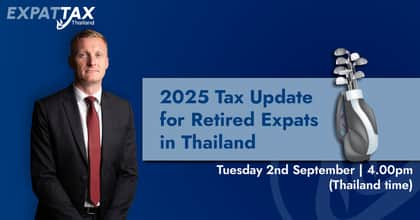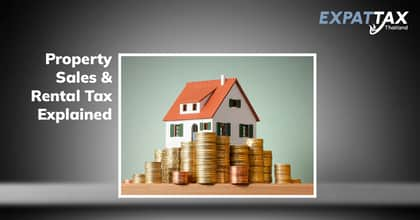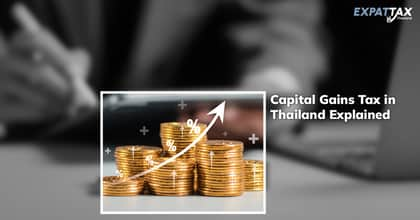Thailand is considering a bold change that could reshape the property landscape for foreign residents. A draft law now before Cabinet proposes allowing 99-year residential leases — a dramatic upgrade from the current 30-year limit.
While not yet law, the proposal signals a shift in thinking: one that aims to attract long-term investment, support economic growth and position Thailand as a more welcoming home for global talent and retirees.
📰 Read the full article in the Nation
Why Now?
The government’s motivation is clear: longer leases give foreign investors and long-term residents the security they need to contribute more fully to the Thai economy, whether that’s buying homes, investing in renovations or planning for retirement. It also supports the growing policy goal of attracting wealthy expats, professionals and retirees under new visa programmes.
The proposal is being prioritised under an accelerated timetable, with the government aiming to implement the law as early as late 2025.
What It Could Mean for Expats
If the law passes in its current form, it could transform how expats view property in Thailand. Here’s how:
Near-Lifetime Security of Tenure for Long-Term Expats
A 99-year lease would give foreign residents something close to freehold in practical terms. It removes the uncertainty of 30-year renewals, allowing long-term expats to settle with confidence, plan for retirement and invest in their homes without fear of losing tenure.
Upfront lease costs could be spread over the term, making financial planning easier. If the lease is assigned or sub-let in future, clear rules around capital gains would support better decision-making. Registration fees and stamp duty would also need to be properly accounted for under Thai tax law.
Clearer Succession Planning for Foreign Families
A long-term lease with decades remaining provides a far more valuable and secure asset for heirs than a lease nearing expiry. It simplifies inheritance arrangements and gives families greater certainty when planning across generations.
Having a lease with real value makes it easier to include the property in estate planning, both in Thailand and abroad. Thai wills can be structured to reflect the lease, inheritance tax thresholds considered, and probate processes aligned to ensure a smooth transfer of rights to beneficiaries.
This is particularly helpful for foreign spouses of Thai nationals, who may otherwise face complex legal and practical challenges when inheriting property. A long lease offers a clear, transferable asset that supports security and stability for the surviving partner.
Improved Expat Access to Property Financing in Thailand
Traditionally, it has been challenging for expatriates to secure financing for real estate transactions in Thailand, due to limited mortgage options and stringent lending conditions. However, longer leases can unlock better financing opportunities. Thai and international banks are typically more willing to lend against leaseholds with extended terms, meaning expats may find it easier to access mortgages with more competitive rates.
This could lower the cost of buying or building a home and provide greater financial flexibility. Mortgage interest deductibility, cross-border loan considerations and the tax implications of refinancing are all areas that may become more relevant with broader access to property finance.
Confidence to Improve or Build
A 30-year lease can make major renovations or new construction feel risky, especially when future renewal is uncertain. A 99-year lease changes the equation entirely, giving expats confidence to invest in their homes for the long term.
Whether you’re planning to build from scratch, add a guest villa or renovate an older property, a long lease provides the stability needed to justify significant improvements. Some of these costs may be eligible for depreciation, and rental income from guest units or spare rooms may be offset by available allowances under Thai tax rules.
Stronger Investment Appeal and Exit Value
A 99‑year lease makes Thai leasehold property far more attractive to investors. You can plan rental income and capital growth over a realistic time frame instead of a 30‑year cut‑off. It becomes easier to secure finance, spread fit‑out costs, and forecast land and building tax.
Resale prospects also improve. A lease with many decades left is more appealing to buyers than one nearing expiry, which usually supports a higher price and a quicker sale. This improves overall return on investment. Investors can also manage tax more efficiently by spreading acquisition and improvement costs, claiming depreciation, and timing any assignment or remittance.
In short, the longer term turns what was a wasting asset into something that behaves much more like freehold for planning and exit purposes.
Stronger Resale and Exit Options for Foreign Buyers
One of the challenges with short-term leases is the limited appeal to future buyers. A 99-year lease would change that, making properties more marketable and helping to preserve or even enhance resale value.
Buyers are more likely to invest when they know they’re acquiring a long-term asset. This opens up greater flexibility for expats who may eventually want to sell or transfer their lease. Planning the timing of the sale, understanding capital gains exposure and considering international tax agreements will all play a role in optimising the outcome.
Key Points to Keep in Mind
While this is a promising development, a few caveats remain:
- Still in consultation – no clauses have reached Parliament yet
- Leasehold, not freehold – properties revert to Thai ownership after 99 years
- Agricultural land excluded – farmland is not covered
- Past lease extensions struck down – only statutory reform will give true long-term rights
- Earliest implementation expected late 2025 – but it’s moving fast
What Should You Do Now?
It’s too early to act on the law, but not too early to plan for it. If you’re thinking about property in Thailand, now is the time to understand how these proposed changes could affect your tax position, estate planning and investment decisions.
At Expat Tax Thailand, we’re already helping clients think through the implications. Whether it’s understanding the potential tax treatment of a long lease, coordinating with estate planners, or modelling how leasehold changes could impact your financial plans, we’re here to help.
Do you have questions or would you like to discuss it further? Speak with our team for personalised guidance based on your situation.
Want to stay informed as the law develops?
Sign up for our free Tax Alerts and get plain-language updates delivered straight to your inbox.


